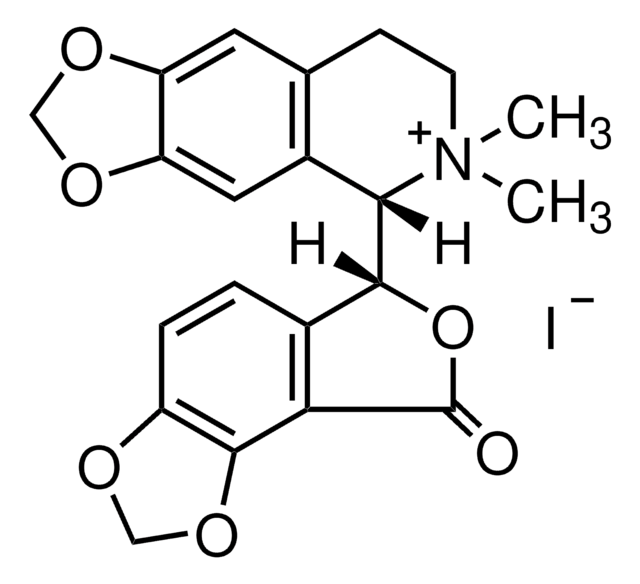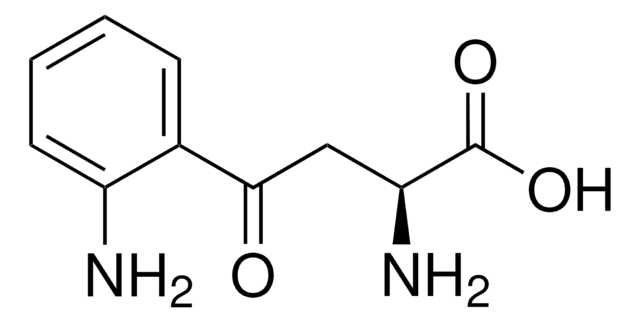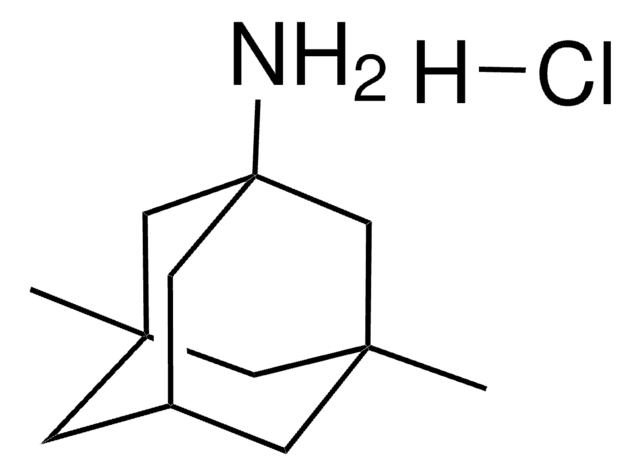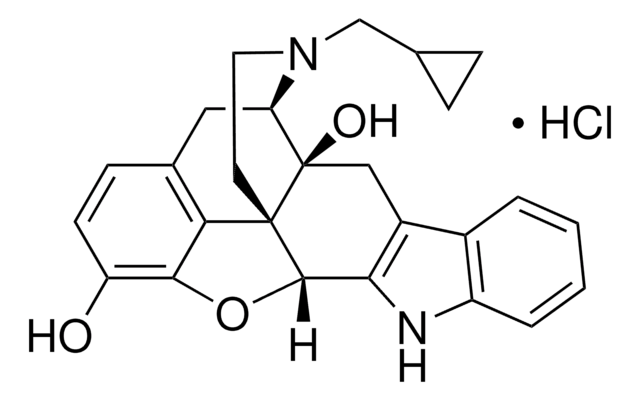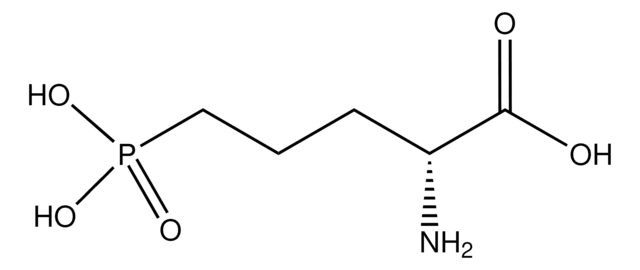おすすめの製品
品質水準
アッセイ
≥98% (HPLC)
形状
powder
色
white to beige
溶解性
DMSO: 10 mg/mL (clear solution)
保管温度
2-8°C
SMILES記法
COc1ccc(CN2C=C(C(O)=O)C(=O)c3ccccc23)cc1
InChI
1S/C18H15NO4/c1-23-13-8-6-12(7-9-13)10-19-11-15(18(21)22)17(20)14-4-2-3-5-16(14)19/h2-9,11H,10H2,1H3,(H,21,22)
InChI Key
BZBBTGCKPRSPGF-UHFFFAOYSA-N
生物化学的/生理学的作用
特徴および利点
シグナルワード
Warning
危険有害性情報
危険有害性の分類
Acute Tox. 4 Oral
保管分類コード
11 - Combustible Solids
WGK
WGK 3
引火点(°F)
Not applicable
引火点(℃)
Not applicable
適用法令
試験研究用途を考慮した関連法令を主に挙げております。化学物質以外については、一部の情報のみ提供しています。 製品を安全かつ合法的に使用することは、使用者の義務です。最新情報により修正される場合があります。WEBの反映には時間を要することがあるため、適宜SDSをご参照ください。
Jan Code
SML0497-BULK:
SML0497-IP:
SML0497-50MG:
SML0497-VAR:
SML0497-10MG:
試験成績書(COA)
製品のロット番号・バッチ番号を入力して、試験成績書(COA) を検索できます。ロット番号・バッチ番号は、製品ラベルに「Lot」または「Batch」に続いて記載されています。
資料
We offers many products related to muscarinic acetylcholine receptors for your research needs.
Muscarinic acetylcholine receptors are G protein-coupled receptors (GPCRs) and mediate acetylcholine actions in the CNS and non-nervous tissues. Learn more about acetylcholine receptors and their role in cell signaling.
ライフサイエンス、有機合成、材料科学、クロマトグラフィー、分析など、あらゆる分野の研究に経験のあるメンバーがおります。.
製品に関するお問い合わせはこちら(テクニカルサービス)
